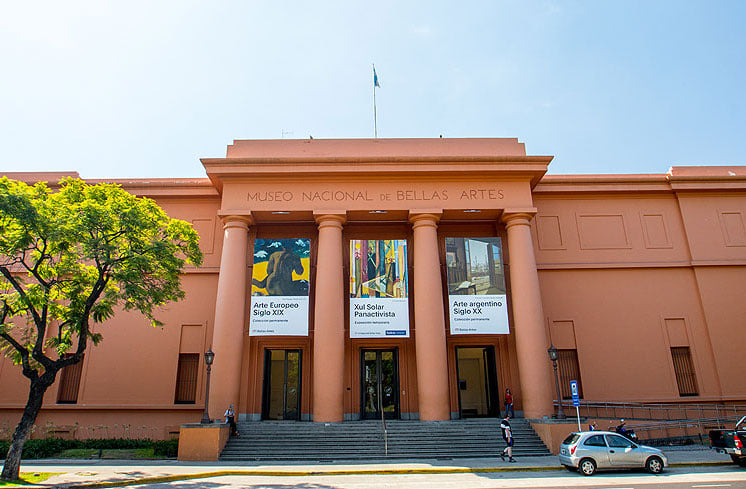Art World
Time to Cry for Argentina? The Government Has Axed Its Culture Ministry and Will Now Charge Museum Entry Fees
A financial crisis is taking a toll on Argentina's art scene.

A financial crisis is taking a toll on Argentina's art scene.

Sarah Cascone

Facing an economic “emergency,” Argentina announced earlier this month that it would merge several governmental organizations, including the Ministry of Culture and the Ministry of Education. President Mauricio Macri also announced new taxes on exports in order to cut spending and stop a run on the peso.
“It is a failure to not reach a balanced budget,” said Macri in a televised speech, Bloomberg reported. “This isn’t any other crisis. It has to be our last one.” The goal is to balance the country’s budget by next year.
The longterm effects of such a move are unclear, but members of ministry staff are already concerned about how the agency is being run. “Access to culture is a fundamental human right of the people and must be guaranteed by the state,” read statement from employees, according to La Nota.
They went on to declare that Argentina is “in a state of ‘cultural emergency,'” and that minister of culture Pablo Avelluto had already cut staff and slashed budgets since he was appointed in December 2015. (His own title has been downgraded to secretary of culture.) “The elimination of the ministry should matter to everyone, because the measure will result in less rights and education for the Argentine people,” the statement said.
The first major change under the restructured ministry is a resolution to begin charging admission at national museums, which are currently free, beginning on September 25. Altogether, the Ministry of Culture runs 24 museums and 11 national institutes, including Museo Nacional de Bellas Artes (the National Museum of Fine Arts).
It was there that museum workers gathered last Friday to protest the decision to eliminate the independent Ministry of Culture, according to Pagina 12. “With this measure they are putting a clear barrier to the people as a whole for their access to culture and cultural assets. The situation is very serious, we can not let it stand,” Nicolás Rodríguez Saa, of the Ministry of Culture’s internal board, told the news site.
Despite the new museum entry policy, “the change of rank does not imply the closing of programs,” Lucio Ferreira, director of communications for the Buenos Aires Ministry of Culture, told artnet News in an email.
Clarín reports that there will be no layoffs at the ministry, but cited a document provided by its internal board as evidence of financial struggles at the agency. According to the report, the national library commission did not make its annual book purchase in 2018, funding to the Red de Puntos de Cultura has been reduced by 35 percent, and the Museo Casa de Yrurtia, the historic home of sculptor Rogelio Yrurtia, has shuttered due to electrical problems.
Eliminating an independent Ministry of Cultural marks a return to a previous government structure. Before its founding in 2014, cultural matters were handled by Argentina’s secretary of culture, who reported directly to the president. During Cristina Fernández de Kirchner’s term, folk singer and songwriter Teresa Parodi became the first person to hold the minister of culture post.
There are currently 21 ministries, but the government cuts will reportedly merge about half of them with other departments. Also being eliminated are the ministries of health, science and technology, and social development.
The Buenos Aires culture ministry, led by Enrique Avogadro, was responsible for working with Art Basel for the recent Art Basel Cities. It is unaffected by the restructuring.
“Since Macri’s presidency, most funds, scholarships, and other economic benefits to culture initiatives have disappeared, have been halved or they have stopped delivering,” Violetta Mansilla, the director of Buenos Aires gallery collective UV, told artnet News in an email. “The reality of Argentina today is very sad, and obviously culture is one of the first cuts.”